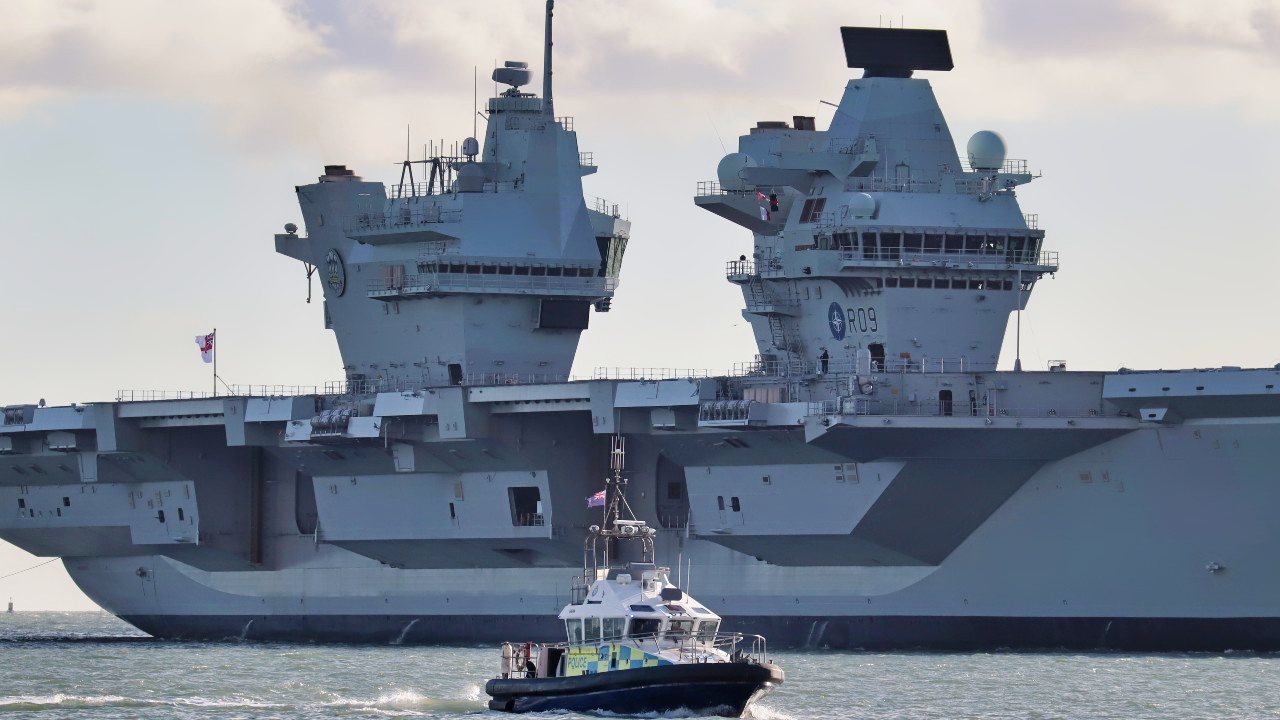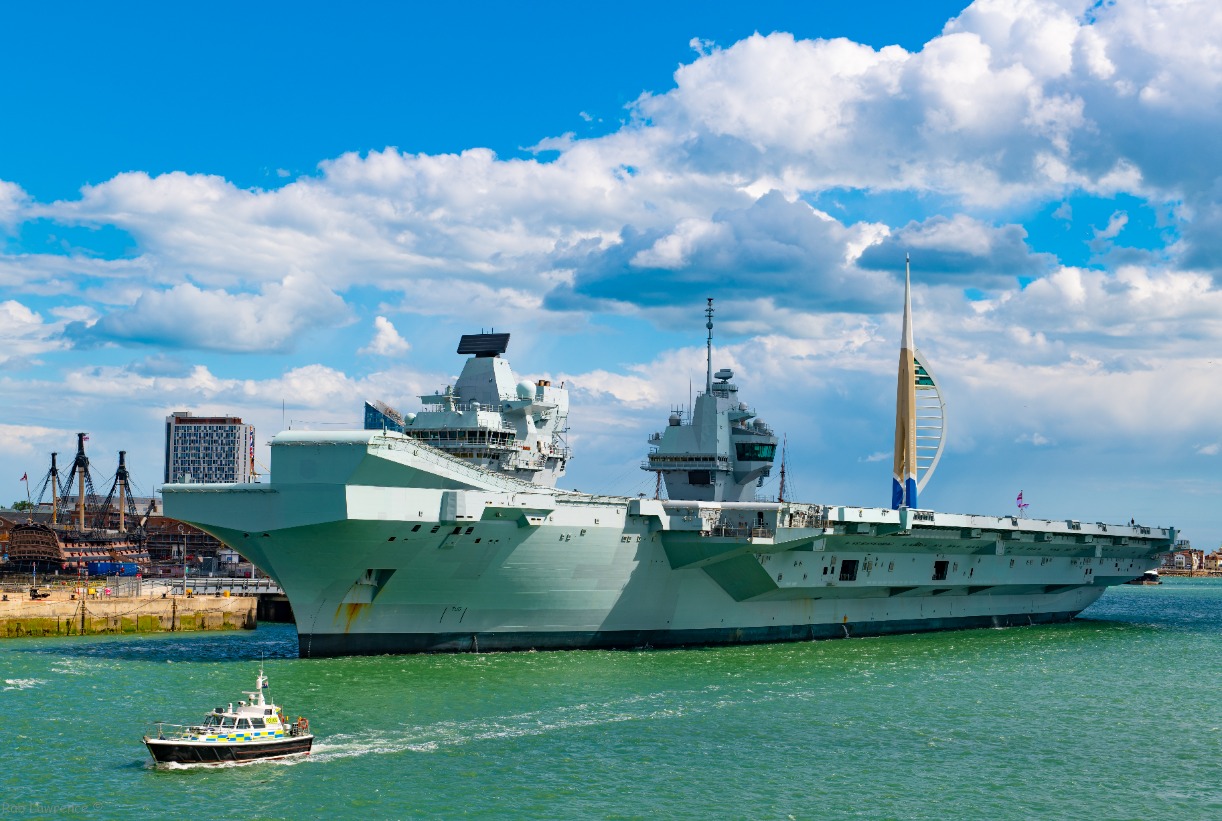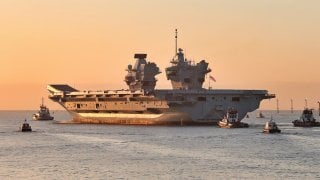The Royal Navy's Aircraft Carrier Nightmare Is Getting Worse
Earlier this year, there were reports that the UK's Royal Navy might be forced to sell one of its Queen Elizabeth-class aircraft carriers due to the high operating costs – not that it would likely find any eager buyers considering that both the flagship HMS Queen Elizabeth and HMS Prince of Wales have been sidelined due to issues with the propulsion systems.
Earlier this year, there were reports that the UK's Royal Navy might be forced to sell one of its Queen Elizabeth-class aircraft carriers due to the high operating costs – not that it would likely find any eager buyers considering that both the flagship HMS Queen Elizabeth and HMS Prince of Wales have been sidelined due to issues with the propulsion systems.

The Daily Mail tabloid reported in February, citing naval officials that the Royal Navy could be forced to mothball the HMS Prince of Wales as early as 2028 due to funding issues.
Though London's coffers are no more likely to be filled, there are now supporters of the Royal Navy's flattops who suggest the proper move would be to enhance the capabilities of the vessels rather than push one to the reserve fleet, or worse sell it.
Conservative MP Damien Moore broached the subject of retrofitting the Queen Elizabeth -class aircraft carriers, increasing the vessels' capabilities. That would include adding catapults, an angled flight deck, and arresting wires. Currently, both the HMS Queen Elizabeth and HMS Prince of Wales employ a ski-jump ramp – while they were designed with short/vertical takeoff and landing (S/VTOL) aircraft, notably the Lockheed Martin F-35B variant.
It isn't likely that either carrier will receive such a radical upgrade, but James Cartlidge, the Minister of State for Defence, offered a response to Moore's inquiry.
"The Queen Elizabeth Class Aircraft Carriers (QEC) were built to allow for capability changes over the lifetime of these ships. The Royal Navy is committed to developing capabilities that will allow it to build combat mass, whilst remaining at the forefront of technology, and this includes a strong focus on uncrewed air systems," explained Cartlidge, according to a report from UK Defence Journal, while he added that the two flattops were developed to evolve – and that could include changes to the launch and recovery systems.
"As such, the aviation capabilities of the QEC aircraft carriers will continue to evolve in the coming years and the operation of a wider variety of aircraft is being considered as part of a detailed analysis to scope and assess options. The launch and recovery systems for these new capabilities is currently under review, following the recent successful trials of Mojave and Windracer," Cartlidge continued.

As previously reported, the Royal Navy's two Queen Elizabeth-class aircraft carriers were approved in 2007 by then-Prime Minister Gordon Brown – only for HMS Prince of Wales to face cancelation and scrapping even before it set sail due to concerns over funding. In the end, it was determined that axing it would be more expensive than completing it.
The vessels cost more than a combined £6 billion, and it has been widely accepted the Royal Navy remains unable to adequately defend or operate them independently. The UK's senior service has just one solid stores ship, RFA Fort Victoria, to support the carriers and she is due to be retired in 2028.
Thus the talk of upgrades should be taken with a big grain of salt – if the Royal Navy can barely afford to keep them in service, upgrading them seems to be the last option on the table.
Author Experience and Expertise: Peter Suciu
Peter Suciu is a Michigan-based writer. He has contributed to more than four dozen magazines, newspapers, and websites with over 3,200 published pieces over a twenty-year career in journalism. He regularly writes about military hardware, firearms history, cybersecurity, politics, and international affairs. Peter is also a Contributing Writer for Forbes and Clearance Jobs. You can follow him on Twitter: @PeterSuciu. You can email the author: [email protected].


